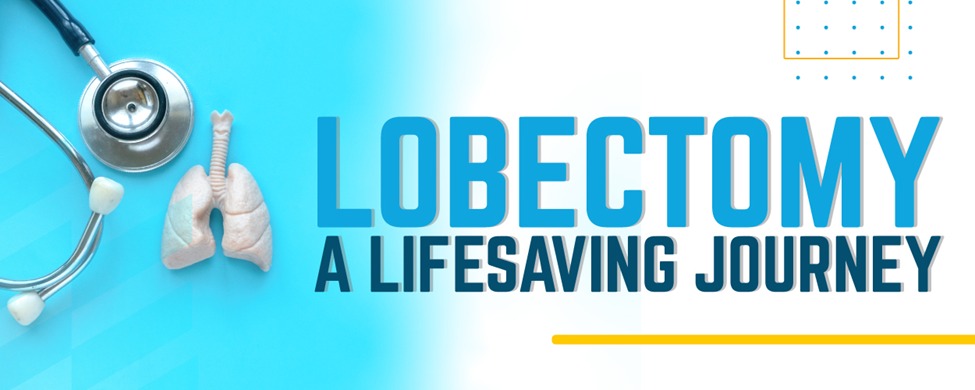What Is a Lobectomy?
Your lungs are divided into sections called lobes. There are three lobes in your right lung and two lobes in your left lung. Sometimes, a lobe of your lung may be damaged by disease or cancer and need to be removed. This is called a lobectomy.
A lobectomy can be done in two ways: minimally invasive or thoracotomy. Minimally invasive means that the surgeon makes a few small incisions on the side of your chest and uses a special camera and instruments to remove the lobe. Thoracotomy means that the surgeon makes one longer incision on the side of your chest and opens up your rib cage to remove the lobe. Both methods also involve removing nearby lymph nodes to check for possible spread of disease or cancer.
The type of lobectomy you have depends on your diagnosis, your overall health, and your surgeon’s preference. Both methods have advantages and disadvantages, and you should discuss them with your surgeon before the surgery.
What to Expect Before, During and After the Surgery
Before the surgery, you will have some tests to check your blood and breathing (pulmonary function tests), as well as a history and physical examination by your surgeon. You may also need some tests to check your heart, depending on your age and condition. If you smoke, you should quit as soon as possible to reduce your risk of complications during and after the surgery. You will also be asked not to eat or drink anything before arriving at the hospital.
During the surgery, you will be under general anesthesia, which means you will be completely asleep and not feel any pain. The surgery usually takes two to four hours, depending on the type of lobectomy you have. You will have a drainage tube (chest tube) coming out of your chest to remove excess fluid and air from your lung.
After the surgery, you will stay in the hospital for two to four days, depending on how you recover. You will have some pain, which can be managed with medication. You will also have some breathing exercises to do with a device called an incentive spirometer. This helps prevent pneumonia and improve your lung function. You will be encouraged to get up and walk around as much as possible starting from the day after the surgery. This helps prevent blood clots and speed up your recovery.
How TB Vets Can Help You
TB Vets is a charity organization that raises money to support hospitals in BC with respiratory equipment and education. We have been helping patients with lung diseases since 1946. We know how difficult it can be to undergo a lobectomy and recover from it.
By donating to TB Vets, you are helping us save lives and breathe easier. To learn more about our work and how you can get involved, visit our donate page by clicking on the button below.
Thank you for reading this blog post and supporting TB Vets!
